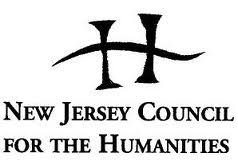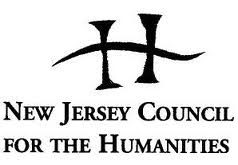Lizette Delgado-Polanco
Executive Director
Service Employees International Union, New Jersey State Council
 |
Lizette Delgado–Polanco was born in the Bronx, New York to Dominican parents. Her mother had been forced to leave the Dominican Republic in the 1960s because of her family’s participation in the resistance party, El Partido Revolucionario Dominicano. Ms. Delgado–Polanco moved to Hammonton, New Jersey as a young child and resided there with her aunt. When she was 13 her family was able to return to the Dominican Republic in 1980, where her grandfather was named the head of the Department of Agriculture. After graduating from high school in the Dominican Republic, Ms. Delgado–Polanco returned to the United States and settled in Atlantic City, New Jersey. After a wrongful termination, Ms. Delgado–Polanco became deeply involved with local unions, resulting in her working as a bilingual representative for the Hotel Employees and Restaurant Employees [HERE], Local 54. Because of her work with unions, and their Hispanic members, Ms. Delgado–Polanco became involved with local and state wide politics, culminating in being named as Assistant Secretary of State in 2002. She was the first Latino to be named to this position. Currently, Ms. Delgado–Polanco is the executive director of the Service Employees International Union New Jersey State Council, which serves over 40,000 members in New Jersey. Ms Delgado–Polanco has also attended three Democratic National Conventions (2000, 2004, and 2012) as a delegate for the State of New Jersey. Prepared by Elizabeth Parker, Associate Archivist. |
Hear Lizette Delgado–Polanco discuss her experience as a delegate for the State of New Jersey at the 2012 Democratic National Convention hearing the keynote address of San Antonio Mayor, Julián Castro:
“[Julián Castro, Mayor of San Antonio, Texas] made me so proud… I felt it was a very emotional speech [the keynote address at the 2012 Democratic National Convention], first of all just because his story reflects a lot of our Latinos’ stories where you have the strong grandmother. You know, just as his grandmother, my grandmother… had a third grade education. My mother maybe got to [the] seventh grade. So I can relate to what he was saying. But it was very important for them that we go to school and educate ourselves and really… [acknowledge] the sacrifices that we’ve made… [and] that they’ve made; that they can see it someday… in their children and grandchildren. And it made me a little bit sad when he said his grandmother who, you know, was… such a big influence in his life was not there to see… how great and successful him and his brother [Texas State Representative Joaquín Castro], or what great men they have become, because they are incredible young men. I just really felt like, for the first time [since] I’ve been a delegate–I was a delegate for Gore–Lieberman [at the 2000 Democratic National Convention], and I was a delegate for Kerry–Edwards [at the 2004 Democratic National Convention]–and this is the first convention I went to that I felt the Latino agenda was part, we were actually a part of the Democratic platform.”
Text edited for clarity. For a full verbatim transcript of the quote, please see pp. 32-33 of the complete interview transcript.
Access to full verbatim interview transcripts and audio recordings are available by appointment only. Contact an NJHRIC archivist at njhric@npl.org, (973) 733–4791, or via mail, NJHRIC at The Newark Public Library, 5 Washington Street, Newark, NJ 07102 with your request.
For a more extensive and specific list of peoples, places, organizations and topics discussed in this oral history, please see the Interview Transcript Index.
Copyright Statement:
All uses of these transcriptions are covered by copyright agreement between the interview participants and the NJHRIC at The Newark Public Library. Under “fair use” standards, excerpts of up to three hundred words (per interview) may be used without the NJHRIC’s permission, so long as the materials are properly cited (see citation note). Any excerpting beyond three hundred words requires written permission of the Project Archivist, appropriate citation, and may require a fee, especially if this is a commercial publication or production. Under certain circumstances non-profit users may be granted a waiver of the fee. Please contact njhric@npl.org for copyright questions.
This project was made possible by a grant from the New Jersey Council for the Humanities, a state partner of the National Endowment for the Humanities. Any views, findings, conclusions or recommendations expressed in this project do not necessarily represent those of the National Endowment for the Humanities or the New Jersey Council for the Humanities.
Additionally, any views, findings, conclusions or recommendations expressed in this project do not necessarily represent those of the Newark Public Library or the New Jersey Research and Information Center at the Newark Public Library.





